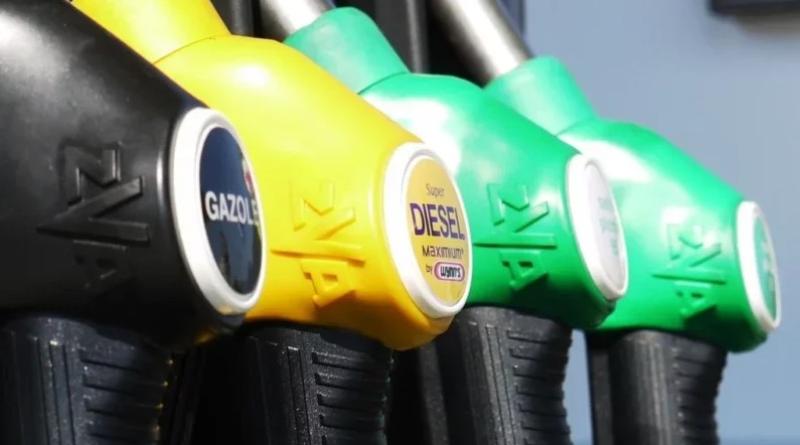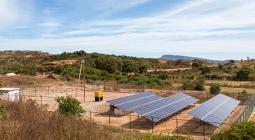Dutch initiative must turn the tables on fossil fuel subsidy reform

In 1964, US Supreme Court’s Justice failed to define pornography, but concluded that “I know it when I see it”. We need the same common sense approach to fossil fuel subsidy reform.
An avalanche of public money still supports production and consumption of coal, oil and gas, despite multiple pledges to phase out such subsidies.
The Netherlands is leading a “first-mover” initiative at Cop28 climate talks to tackle the issue, following a national assessment that its fossil fuel subsidies amounted €39.7 – 46.4 billion in 2022, and thousands of climate activists protesting in The Hague.
Two G20 countries (Canada and France) and ten smaller economies joined the launch of the coalition in Dubai on 9 December.
This is welcome, but it risks getting mired in the same methodological rationalizations that have always held back action.
The coalition has signed up to improve “transparency”, identify “barriers” and establish a “dialogue” to reform fossil fuel subsidies. Instead, they should change the defaults and push for a blanket phaseout of all government support to fossil fuels, unless subsidizers can prove such measures address energy poverty or just transition better than any other readily available policy tool.
A trillion-dollar issue
In 2022, public financial support for fossil fuels, in the form of subsidies, investments by state-owned enterprises (SOEs), and lending from public financial institutions, exceeded $1.7 trillion globally — a record high according to IISD’s Burning Billions report.
Phasing out these subsidies is challenging because it cuts across all of the economy. It takes a whole-government commitment and broad-based support from various ministries, political groups, and businesses, not just diplomats and environment officials. For example, in the US, a subsidy reform package has been submitted by the Democratic party administration, then blocked by Congress many times.
There is a role for international cooperation on fossil fuel subsidy reform for two reasons. First, it is politically easier for some countries to make progress as a first movers’ collective than be “lone wolves”. Second, countries need expert advice and technical assistance for the reform design and implementation.
Credibility challenge after many failures
The new coalition members must up their game given the previous failures on fossil fuel subsidy reform commitments under G7, G20, and APEC (since 2009), Sustainable Development Goals, UNFCCC Cop26, and many other related efforts such as the Friends of Fossil Fuel Subsidy Reform, the Agreement on Climate Change, Trade and Sustainability (ACCTS), the ministerial statement at the WTO and the Global Biodiversity Framework.
To be credible reform champions, the new coalition members must take on commitments to phase out subsidies to both production and consumption of fossil fuels by 2025 in the OECD countries, and by 2030 deadline in the non-OECD countries (reflective of the G7 commitment and SDG 12.c timelines, respectively). They must convert these commitments into specific national policy frameworks and include fossil fuel subsidy reform in their national climate plans by next year’s Cop29 summit.
Such a model is key to the success of the Clean Energy Transition Partnership, under which some of the same governments and other signatories agreed to implement domestic policies to stop international financing of fossil fuels within one year of joining.
Bold and targeted moves needed
The Dutch initiative’s current focus on reforming tax cuts for aviation and shipping is novel, but reference to such agreements should not serve as a distraction from the reforms that must be undertaken at the national level.
For example, tax breaks and other subsidies for oil and gas exploration and production have no justification given the scientific consensus that there is no room for new oil, gas and coal developments in a Paris-aligned world.
The countries that have reformed fossil fuel subsidies in past decades did not do it because of international climate commitments. Rather it was driven by fiscal pressure including conditional loans from the IMF and the World Bank (the Dominican Republic, Egypt, or Ukraine) or the political will to diversify their energy mix and support domestic renewable energy (India).
These and other examples show that fossil fuel subsidy reform efforts are most effective when countries commit to reinvesting a share of saved expenditures and generated revenues. This helps build public support for reform efforts and can address negative impacts of fossil fuel price increases on households. Members of the new coalition must commit to reinvesting subsidy reform savings and revenues generated from fossil fuel taxation to clean energy and just transition programs.
Ivetta Gerasimchuk is director of the energy programme, leading international strategy work at the International Institute for Sustainable Development.






